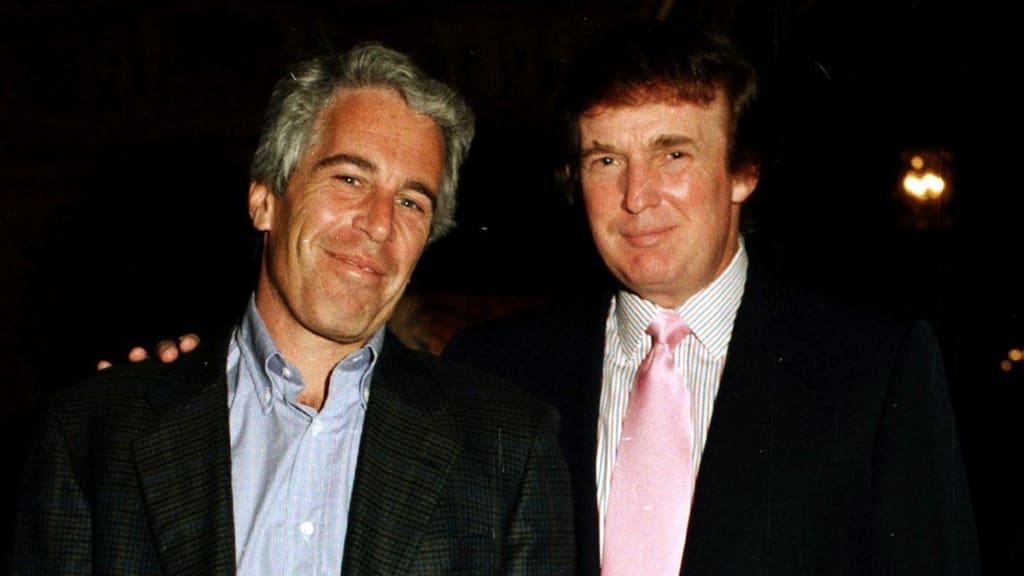The Epstein Case: A Closer Look at the Conspiracy Theories Surrounding His Death
"Exploring the Unanswered Questions and Lack of Transparency in the Epstein Case"

Jeffrey Epstein, a wealthy financier and convicted sex offender, was found dead in his jail cell on August 10, 2019. While the official cause of death was ruled as suicide by hanging, many people have raised questions and doubts about the circumstances surrounding Epstein's death. In the wake of Epstein's passing, a number of conspiracy theories have surfaced, each offering a different explanation for the financier's untimely death.
The first and most prominent theory is that Epstein was murdered to prevent him from revealing damaging information about other powerful individuals. Epstein was well-known for his association with some of the world's most influential people, including politicians, royalty, and business leaders. Some have suggested that Epstein had information about these individuals that could have potentially brought them down if made public, and that they had motive to silence him.
A second theory is that Epstein was part of a larger sex trafficking ring, and that his death was a cover-up to protect those who were involved. Epstein's case was one of the largest and most high-profile sex trafficking cases in recent history, and many people believe that there were more individuals involved than have been publicly named. Some have suggested that Epstein's death was an attempt to silence him and prevent him from revealing the names of other people who were involved in the ring.
A third theory is that Epstein's death was orchestrated by the government in order to prevent him from revealing information about illegal government activities. Epstein was known to have close ties with the intelligence community, and some have suggested that he may have had information about the inner workings of the government that could have been damaging if made public. According to this theory, Epstein's death was a way for the government to cover their tracks and protect their secrets.
Regardless of the validity of these theories, the fact remains that Epstein's death has raised many questions and sparked a great deal of public speculation. While the official cause of death has been ruled as suicide, many people remain skeptical of the official explanation. The Epstein case is a prime example of how a high-profile death can lead to the proliferation of conspiracy theories and the dissemination of misinformation.
It's important to note that conspiracy theories, by definition, lack concrete evidence and often rely on speculation and circumstantial evidence. While it's natural to want to find answers and make sense of tragic events, it's important to approach these theories with a critical eye and be mindful of the sources of the information being presented.
In the end, the true circumstances surrounding Epstein's death may never be fully known. The Epstein case serves as a reminder of the power of speculation and the importance of being vigilant against misinformation. Regardless of the truth behind the conspiracy theories, one thing is clear: the Epstein case will continue to be a subject of public fascination for years to come.
However, there are several inconsistencies in the official explanation of Epstein's death that have fueled the conspiracy theories. For example, some of the guards on duty the night of Epstein's death were asleep and failed to check on him every 30 minutes as required by jail protocol. Additionally, Epstein was taken off suicide watch just days before his death, even though he had reportedly attempted suicide in the past.
These inconsistencies, along with Epstein's powerful connections and the sensitive nature of his case, have led many to believe that something more nefarious was at play. Some have even gone as far as to suggest that Epstein's death was staged to look like a suicide, and that he is actually still alive.
One of the biggest challenges in trying to unravel the truth about Epstein's death is the lack of transparency and cooperation from those in positions of power. The government has not released all of the evidence related to Epstein's death, and many key players in the case have been tight-lipped about what they know. This has only added to the speculation and fueled the conspiracy theories.
It's important to keep in mind that while conspiracy theories can be intriguing, they often lack concrete evidence. It's important to approach these theories with a critical eye and to consider the sources of the information being presented. In the case of Epstein's death, it's possible that the truth may never be fully known.
In conclusion, the Epstein case is a complex and controversial matter that continues to generate a great deal of speculation and conspiracy theories. While some of the inconsistencies in the official explanation of Epstein's death have fueled these theories, it's important to approach them with a critical eye and to keep in mind that concrete evidence is often lacking. The Epstein case serves as a reminder of the power of speculation and the importance of being vigilant against misinformation.
About the Creator
Paul Andrew
I'm a storyteller & content writer with 2 years of experience. Crafting engaging articles & blog posts on a variety of topics. Let's explore the world through my words!






Comments
There are no comments for this story
Be the first to respond and start the conversation.